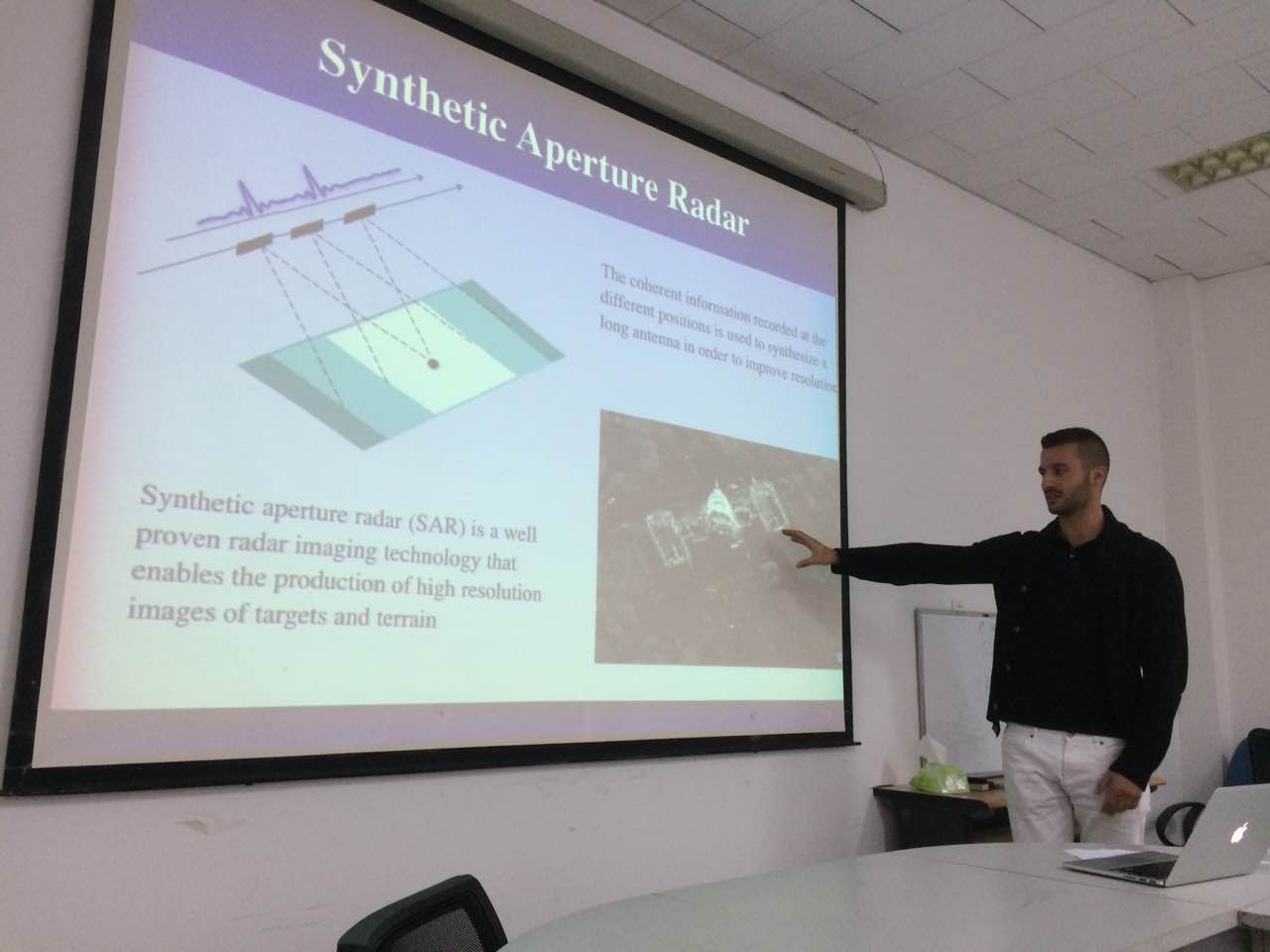Speaker: Mr. Kfir Aberman
Date and Time: 15:00 – 16:00 pm, Tuesday, October 11, 2016.
Venue: Room 146 Research Building
Title: Sub-Nyquist Synthetic Aperture Radar
Abstract:
Synthetic aperture radar (SAR) is a well proven radar imaging technology that enables the production of high-resolution images of targets and terrain. SAR can be operated at night and in adverse weather conditions, overcoming limitations of optical and infrared systems. Conventional SAR systems are limited in their ability to fulfill the increasing demand for improved spatial resolution and wider coverage. While the former demand requires high analog-to-digital sampling rates which are difficult to attain in practice, the latter is upper bounded due to the pulse repetition frequency (PRF) which is dictated by the Shannon-Nyquist theorem. Consequently, sampling rate reduction is of high practical value in radar imaging.
In this talk, we introduce a new algorithm, equivalent to the well-known Range-Doppler method, to process SAR data using the Fourier series coefficients of the raw signals. Using the framework of compressed sensing (CS), we then demonstrate how to exploit the new algorithm features to reduce sampling rate in both range and azimuth axes and process the signals effectively at sub-Nyquist rates. We show that an image can be reconstructed after dropping a large percentage of the transmitted pulses, with no resolution degradation and offer to exploit the complementary pulses to capture other scenes within the same coherent processing interval (CPI). The proposed recovery algorithms exploit the inherent two-dimensional structure of the problem and form a new CS-SAR imaging method that can be applied to high-quality and high-resolution real SAR imaging data acquired at sub-Nyquist rates in both axes. The performance of the new algorithms is assessed using simulated and real data sets.
Bio:
Kfir Aberman received his M.Sc and B.Sc from the Department of Electrical Engineering (Summa Cum Laude) from the Technion - Israel Institute of Technology. His research interests include sampling theory and advanced signal processing methods for radar imaging as well as evolutionary and ant colonies algorithms.






